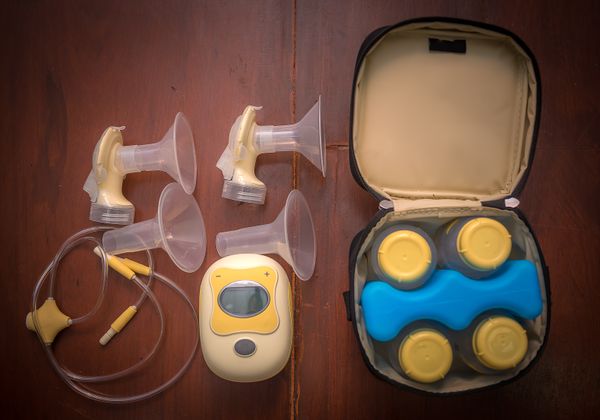Q:
I'm 37 and breastfeeding my 10-month-old baby. I have no sex drive and am wondering if the breastfeeding could be the cause.
A:
First, let me congratulate you on breastfeeding your baby. It's exciting that American women are getting better at breastfeeding—about 70 percent of babies are breastfed in the hospital. After six months, 33 percent of those babies are still nursing, with 17 percent of babies receiving breast milk exclusively.
Yet, as I'm sure you know, the benefits of breastfeeding are numerous—from fewer infections to a reduced risk of allergies, asthma and some cancers. Breastfed children are also less likely to become overweight or obese, or develop diabetes or high cholesterol.
Breastfeeding also benefits you. It can reduce your risk of breast and ovarian cancer and possibly reduce your risk of hip fractures and osteoporosis after menopause.
Now, as for your lack of sexual desire. It is fairly common for breastfeeding women to experience a waning of desire, even months after delivery. This is likely due to the effect breastfeeding has on your hormones. For instance, levels of estrogen are lower while breastfeeding. Estrogen is responsible for maintaining the moistness and flexibility of the vaginal lining, so if levels drop and the lining becomes dry and stiff, intercourse may be uncomfortable. Additionally, while you're breastfeeding your body produces higher levels of the hormone prolactin, which serves to reduce sexual desire. And, finally, levels of testosterone are also lower in breastfeeding women. This "male" hormone plays a role in a woman's overall libido.
But there may be other reasons involved. Some sexuality researchers speculate that breastfeeding meets a woman's needs for "intimate touching," so they are less interested in being touched by their partners. Some women note that their bodies seem to respond in a sexual way to breastfeeding and they feel somewhat aroused. It is important to understand that this may be due to hormones released as a result of nipple stimulation and that the response is completely within the realm of normal.
Finally, like all new moms, caring for an infant can be very fatiguing, particularly if you're also working, taking care of the house and still not getting a full night's sleep.
If you want to continue breastfeeding, by all means, continue! But in the meantime, share this information with your partner, explain how you're feeling. Consider carving out time just for the two of you to reconnect as a couple—without the baby.
This could be a walk every evening while a neighbor watches the baby, a weekly dinner out with no baby talk allowed, or even a weekend away (you can leave some expressed milk for the baby).
Also try intimacy without sex. For instance, ask your partner to give you a massage with scented oil—and no expectation of sex to follow. Spend a half hour just kissing and "making out" on the couch. Or just spend an hour slowly touching one another—while blindfolded.
If these steps still don't help you rediscover your desire, talk to your health care professional or an American Association of Sex Educators, Counselors, and Therapists (AASECT) certified sex therapist. You can find certified therapists in your geographic area by going onto www.aasect.org and clicking on your state. This will help facilitate communication between you, as well as explore any desire issues you may have.
Last, relax a little! Be aware that breastfeeding a baby is a wonderful and worthwhile part of your life and the associated lack of sexual desire is most likely short-lived. Talk with your partner about it and let him/her know that resumption of a more active sexual pattern is likely to resume as your baby grows.







